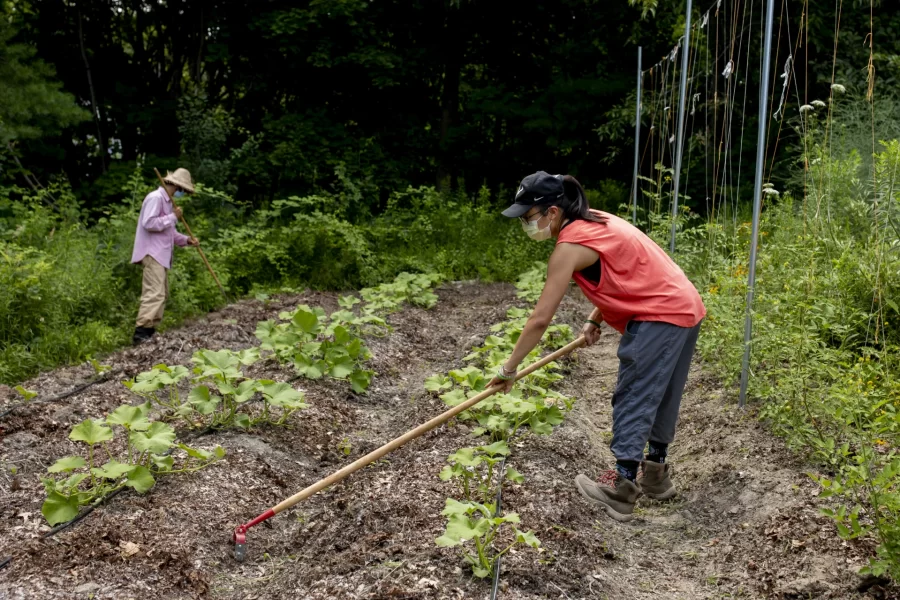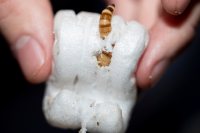
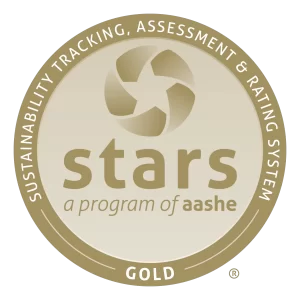
It was the famous catchphrase of the late New York City mayor Ed Koch: “How am I doing?” Bates recently asked the question about its sustainability efforts, and the answer is gold.
A Gold sustainability rating, that is, which Bates earned from the Association for the Advancement of Sustainability in Higher Education, an international benchmarking organization that measures and encourages sustainability in all aspects of higher education.
The college’s Gold rating is based on an institution-wide self-assessment submitted in June 2020 to AASHE’s Sustainability Tracking, Assessment & Rating System. Bates first participated in STAR in 2017, earning its initial Gold rating that year.
The Gold was propelled by an exceptionally strong performance in two sustainability “impact areas”: Energy, in which Bates earned the top rating among the 79 U.S. undergraduate institutions participating in the benchmarking program, and Air & Climate, in which Bates was fourth.
Overall, Bates is one of 10 “Top Performers” among U.S. undergraduate colleges.
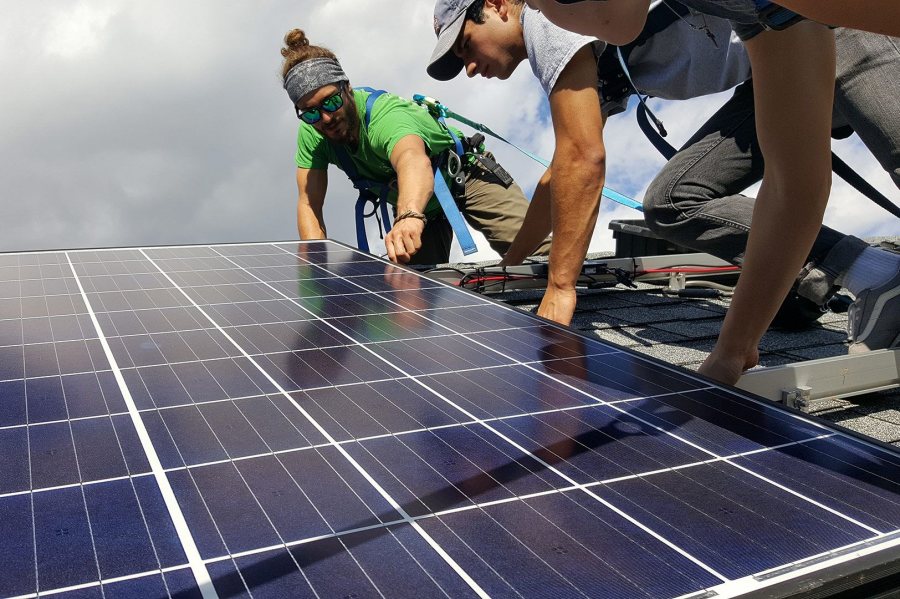
“Because of the hard work of our entire community, Bates has enjoyed a rather meteoric rise to the top of the sustainability field,” said Sustainability Manager Tom Twist.
In her letter accompanying the college’s STARS submission, President Clayton Spencer said, “Sustainability is a natural priority of our campus culture, and plays an important role here at Bates. We see civic engagement and environmental stewardship as integral and intertwined components for creating and sustaining a just world.”
She added, “Bates will continue to lead by example and offer students working models of new ways to interact with their world. We will continue to work on creating a campus that is a living laboratory of sustainable solutions — examples that are not just theoretical, but solutions that can be touched, observed, molded, and transferred out into the world — and preparing students to shape the future.”
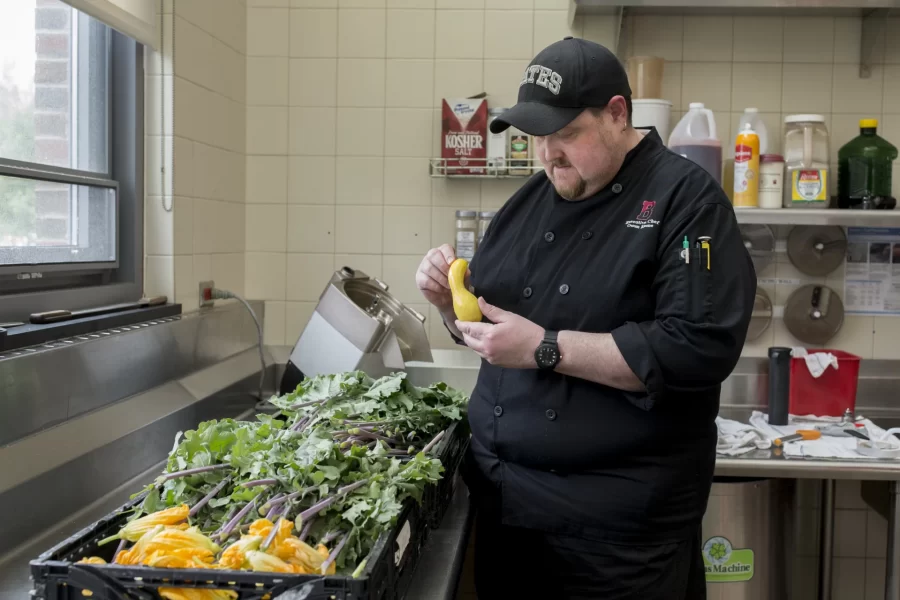
As sustainability manager, Twist works with the college’s standing Committee on Environmental Responsibility. Chaired by Associate Professor of Physics Travis Gould, CER pulls in members and partners from all over campus, including student EcoReps, who support and often take the lead in driving initiatives on clean energy, sustainable food sources, and reducing waste on campus.
A recent example of EcoRep work is the expansion of the college’s support for electric-vehicle use. Students first conducted a college-wide survey that found burgeoning support for EVs. Then they secured competitive grants to fund additional EV chargers.
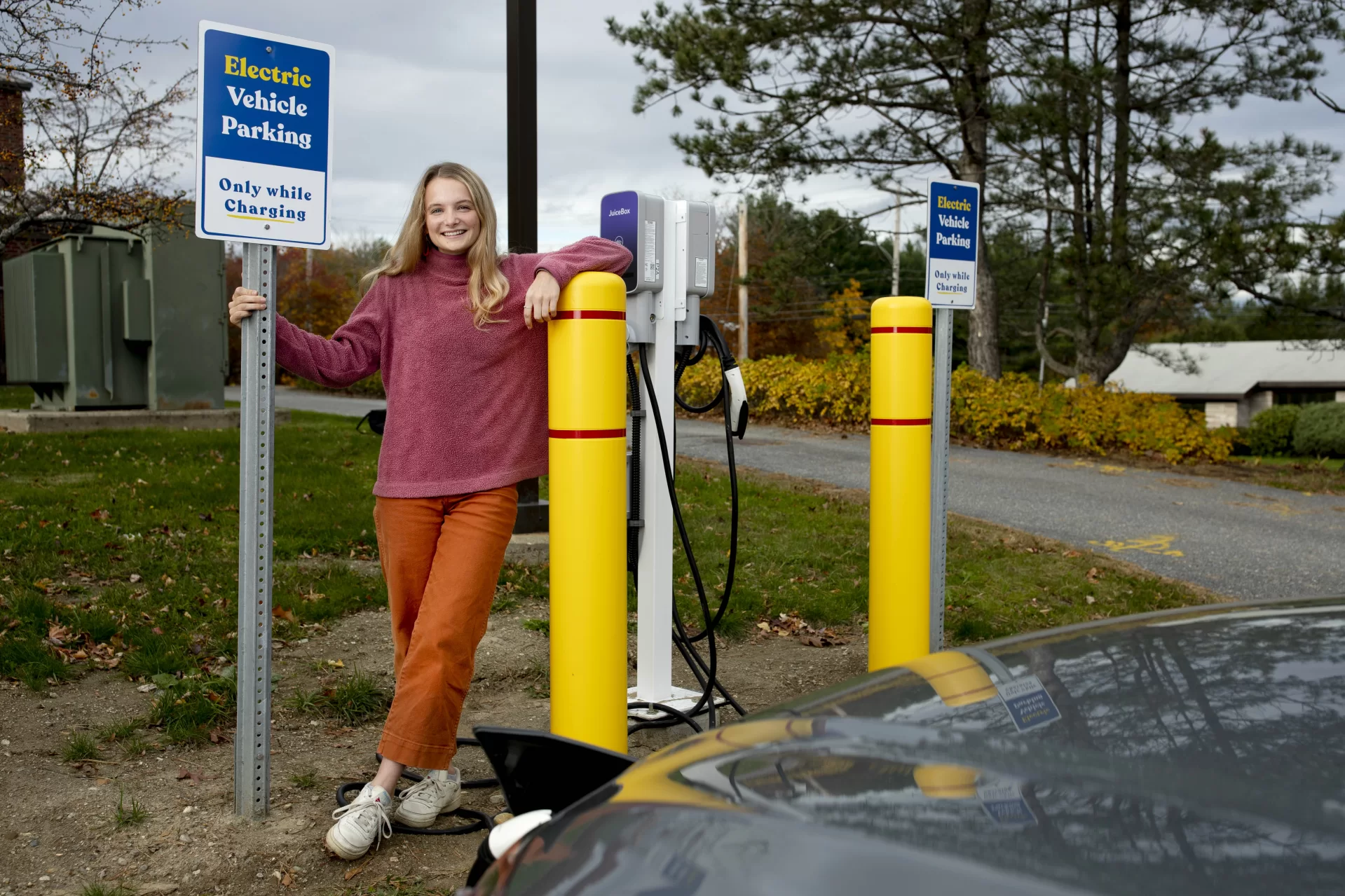
Broadly speaking, Bates has worked on three sustainability fronts: reducing energy consumption through efficiency measures; strengthening the culture of recycling and sustainability on campus; and switching to renewable energy sources. In 2019, those efforts culminated in Bates achieving climate neutrality a year ahead of its goal.
Some sustainability efforts are the chip-away variety. For example, Bates contracts with a Maine-based cleaning company for environmentally friendly cleaning products. The college diverts liquids from its waste stream, reducing the weight and thus the cost of tipping fees at the local landfill. Bates has also instituted a campus-wide composting option for all organic waste.
The college has installed building sensors and controls in all major buildings, allowing for campus wide HVAC control while providing data on energy use from each building. And, LED lighting is now the norm throughout campus.
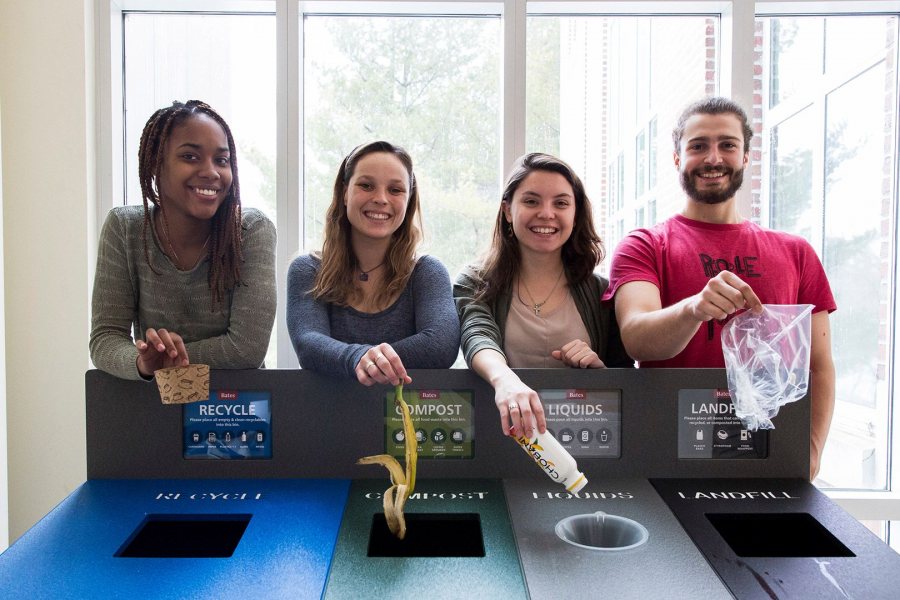
Others represent ongoing stewardship. Since 2006, Bates has pursued green building practices, specifically that construction and renovation projects should achieve, at minimum, equivalency to Silver certification under the green-building certification program known as LEED. The construction of Bonney Science Center, opened this past summer, followed those guidelines.
And others are innovative. Since the last Gold rating in 2017, Bates has created a Green Innovations Grants Program that empowers students, staff, and faculty to develop sustainability projects.
Still other projects underscore the importance of institutional flexibility. Modified in recent years, the college’s three-boiler steam plant, which provides heating for 80 percent of the college’s buildings, is capable of using three different fuel sources: natural gas; a renewable heating oil substitute made from waste wood products; and a second renewable fuel, LR100, a recycled vegetable oil.
“We’re getting a delivery of LR100 this week,” Twist said, during a recent walking tour of the green hallmarks of the Bates campus. Recycled vegetable oil technology has come a long way since Twist used to pick up containers of former fry-o-later vegetable oil to help fuel Chewonki, the coastal educational center where he worked before coming to Bates. No french-fry smell with this stuff, he says.
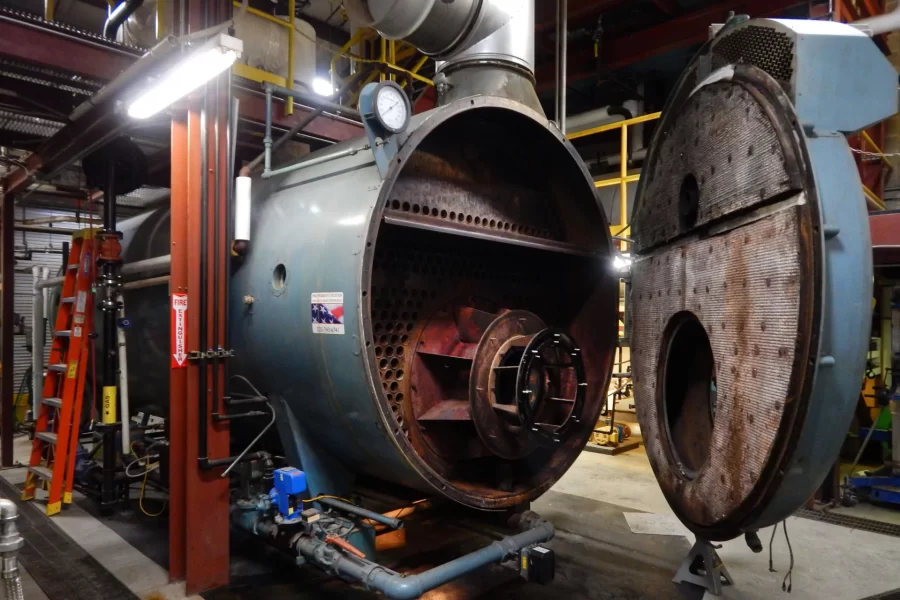
As the college’s vice president for finance and administration and treasurer, Geoff Swift oversees many of the efforts and projects, large and small, that helped move the sustainability needle.
“We’re very conscious of and grateful for the initiatives that are happening in every corner of the campus that keep pushing us forward,” he says. “Whether it’s keeping food waste in Commons to a remarkable minimum — our food scraps go to a local pig farm — or students who take action when they see paper towels that could be replaced with electric hand dryers or the opportunity to expand our EV stations.”
Sustainability accolades like Gold rating from AASHE “are a big deal,” he says. “But we know we’re not done. The technology that helped us get so green is always changing and improving, so we expect to continue to evolve with it.”
